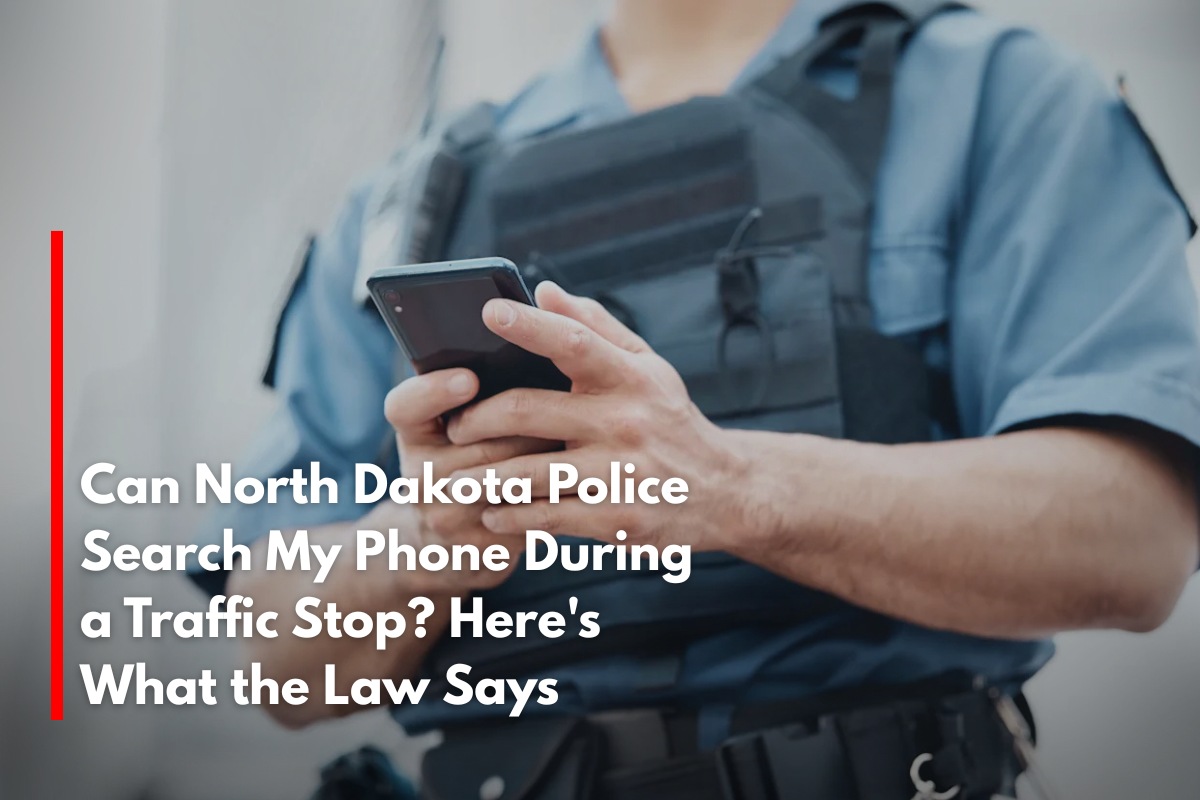In the digital age, cell phones contain vast amounts of personal information, making questions about police searches during traffic stops increasingly relevant. For drivers in North Dakota, understanding the legal framework around phone searches during traffic stops is important to protect privacy rights. This article explains what North Dakota law says about police searching phones during traffic stops, the constitutional principles involved, and practical advice for motorists.
Constitutional Protections and the Riley Decision
Under the Fourth Amendment to the U.S. Constitution, individuals are protected against unreasonable searches and seizures. In 2014, the U.S. Supreme Court ruled in Riley v. California that police generally must obtain a warrant before searching the digital contents of a cell phone, even during or after an arrest.
This landmark decision recognized the immense privacy interests in digital data stored on mobile devices. North Dakota, like all states, follows this federal ruling, meaning police cannot routinely search a phone at a traffic stop without a warrant or the driver’s consent.
When Can Police Search Without a Warrant?
There are exceptions where North Dakota police might lawfully search a phone without a warrant. One key exception is if the driver gives voluntary consent to the search. However, individuals have the right to refuse consent, and it is often recommended to politely do so.
Another exception is the “plain view” doctrine—if illegal material is clearly visible on the phone screen during a lawful interaction, police may seize it without a warrant. Certain exigent circumstances, such as emergencies that require immediate action, may also justify warrantless searches, although such situations are rare during routine traffic stops.
North Dakota Traffic Stop Context and State Laws
North Dakota law prohibits some distracted driving behaviors such as texting while driving, but not all phone use is banned. Recent North Dakota Supreme Court rulings have tightened the standards for traffic stops based on phone-related observations, requiring officers to articulate specific illegal phone activity rather than vague or general phone use.
This makes warrantless phone searches less likely to be justified solely on the basis of observed phone use during a traffic stop. Police must have probable cause or a warrant to search the phone contents in most cases.
What to Do if Police Ask to Search Your Phone
If stopped by police in North Dakota and asked to search your phone:
Remain calm and polite.
Ask if the officer has a warrant for the search.
If no warrant is presented, clearly state that you do not consent to a search of your phone.
Understand that you can refuse consent without penalty; however, refusing may escalate the situation, so it must be done respectfully.
If the phone is seized or searched without consent or a warrant, consult a criminal defense attorney promptly to explore your legal options.
Knowing your rights and asserting them calmly can protect your privacy and prevent unlawful searches.
Importance of Legal Counsel
If evidence from a phone search is obtained illegally, defense attorneys can file motions to suppress that evidence in court, potentially preventing its use in criminal cases. North Dakota lawyers experienced in search and seizure law understand the nuances of electronic privacy and can help protect individual rights effectively. Consulting legal counsel after any questionable search or seizure is highly recommended to safeguard constitutional protections.
Police in North Dakota generally need a warrant to search your phone during a traffic stop, except in limited circumstances such as consent or emergencies. The U.S. Supreme Court’s Riley decision protects digital privacy strongly, and state court rulings reinforce careful scrutiny of police searches related to phones. Drivers should politely refuse unwarranted searches and seek legal advice if their phone is searched unlawfully to preserve their rights.
Sources
(https://www.govtech.com/public-safety/can-police-search-your-phone-during-a-traffic-stop)
(https://www.heartlandlawoffice.com/post/can-police-search-my-phone-without-a-warrant-in-north-dakota)
(https://law.und.edu/_files/docs/ndlr/pdf/issues/95/1/95ndlr193.pdf)
(https://www.trustedchoice.com/distracted-driving/north-dakota-laws/)
(https://www.sandlawnd.com/laws-protect-you-when-pulled-over/)











